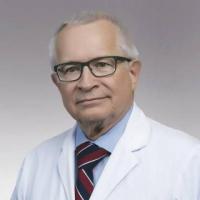Irving Cancer Drug Discovery Program

The road from laboratory discovery to new cancer treatment is extremely challenging.
Drug development requires major funds and infrastructure, for which academia depends on pharmaceutical partners. But industry partners are not capable of pursuing scientific discoveries at the earlier stages of research. As a result, many exciting cancer discoveries go no further than the lab, their clinical potential untapped—falling into what is sometimes referred to the “valley of death” between the lab and clinic.
→ Navigate to: Project Highlights | How to Apply | Connect to Industry Leaders | Newsroom & Announcements
Our Mission
The Irving Cancer Drug Discovery Program (ICDDP) was founded to help faculty make the leap from lab to clinic with their discoveries and accelerate the development of new approaches for the diagnosis and treatment of cancer. This incubator program provides faculty with critical support and infrastructure to drive innovation, including counsel with key industry leaders and veterans in biopharama and other sectors, funding for new technologies, and resources and training for every step of the drug development process.
Project Highlights
» Inducing brain tumor cell death in a new drug to treat glioblastoma
Peter D. Canoll, MD, PhD, Jeffrey N. Bruce, MD and Brent Stockwell, PhD are testing the ability of a newly developed drug delivery device to deliver a novel compound that can kill tumor cells by a mechanism of cell death called ferroptosis. The team will perform safety studies in preparation for a future clinical trial.
» Creating tumor-killing 'grenades' from a patient's immune cells
Cell-based immunotherapy is a personalized treatment that kills cancer by using the patient’s own immune cells. The development has been revolutionary for certain blood cancers, but progress has stalled in solid tumors, which make up 90% of all cancer diagnoses. Jordan S. Orange, MD, PhD, believes this is because the immune cells are specialized for a one-at-a-time killing approach that is easily overwhelmed and suppressed in solid tumors. He plans to find an irreversible small molecule that can turn a patient’s immune cells into “grenades” that engage in multi-directional killing of solid tumor cells.
» Developing potential new therapies for aggressive prostate cancers
Prostate cancer represents the second leading cause of cancer death in American men. Some aggressive forms of prostate cancer, such as neuroendocrine prostate cancer, still lack effective treatments. Michael M. Shen, PhD aims to develop an innovative category of small molecules that target NSD2, an enzyme that is up-regulated in neuroendocrine prostate cancer.
» Pioneering a New Treatment for a Deadly Lung Cancer Subtype
From the lab of Ben Izar, MD, PhD comes a groundbreaking approach to treating non-small cell lung cancer (NSCLC) deficient in STK11 by targeting chromosomal instability (CIN) via the inhibition of the cGAS signaling pathway. This innovative strategy aims to develop a small molecule immunotherapy capable of restoring immune response against these aggressive tumors. Given the poor prognosis and resistance to current immunotherapies observed in STK11-deficient NSCLC, Izar's research addresses a critical unmet need in the field. Through a meticulously designed research plan, including in vivo efficacy studies and the development of novel cGAS inhibitors, the project aims to pave the way for a transformative treatment paradigm for STK11-deficient NSCLC and potentially other CIN-high cancers.
» Targeting PAG to amplify the punch of immunotherapy
Every year, 400,000 cancer patients in the US receive treatment with anti-PD-1 antibodies, a type of immunotherapy that releases a brake on the anticancer actions of T cells. However, only about 25% of patients respond well. Seeking to improve outcomes, the Adam Mor, MD, PhD, discovered a new protein called PAG that acts as a checkpoint on T cells, limiting their cancer-killing actions.
Resources: Connect with Industry Leaders
We can connect you with industry professionals who can provide valuable insights to advance your research innovations from lab to market. Fill out the intake form below and we will find the relevant advisors (under CDA) for one-on-one conversations.
Newsroom and Announcements
Pathways to a Cure: Bridging the Gap
Read more about how the Irving Cancer Drug Discovery Program is working to accelerate discoveries into new therapies in our 2023 annual report.
Tannishtha Reya, PhD: Building a New Paradigm for Translational Cancer Research
Dr. Reya has been appointed as director of Irving Cancer Drug Discovery program, which debuted February 2023.
New Awards Support Discovery of Novel Cancer Drugs
Four Columbia University faculty members have been selected as winners of the inaugural 2023 Irving Cancer Drug Discovery Program (ICDDP).
ICDDP Leadership
ICDDP Staff
Sukhada Bhave
- Alliance Manager

ICDDP Advisory Board
Colin Foster
- Exec In Residence, Fmr CEO, Bayer North America

Michael Kalos, PhD
- CSO Immuno-Oncology, Eli Lilly

Thomas Novak, PhD
- CSO, Autobahn Labs, Samsara Incubator

Irene Rombel, PhD
- CEO and Co-Founder, BioCurie Inc, AI, Janssen

Sandra Ryeom, PhD
- Associate Professor of Surgical Sciences, Division of Surgical Sciences (in Surgery)

William Snyder, PhD
- CTI, Pfizer Incubator

Brian Stearns, PhD
- Catalyst Partners/ Autobahn Therapeutics

ICDDP Steering Committee
Gad Berdugo
- Columbia Executive in Residence

Igor Matushansky, MD, PhD
- Columbia Executive in Residence

Maria Rahmany, PhD
- Director for Business Development and Portfolio Management, Columbia CTV

Peter Tollman
- XIR, MPM Capital, BCG

Dan Von Hoff
- External Adviser/VP&S Alum/Trialist

Ofra Weinberger, PhD
- Senior Director of Commercialization & Associate VP for IP and Tech Transfer, CTV






















